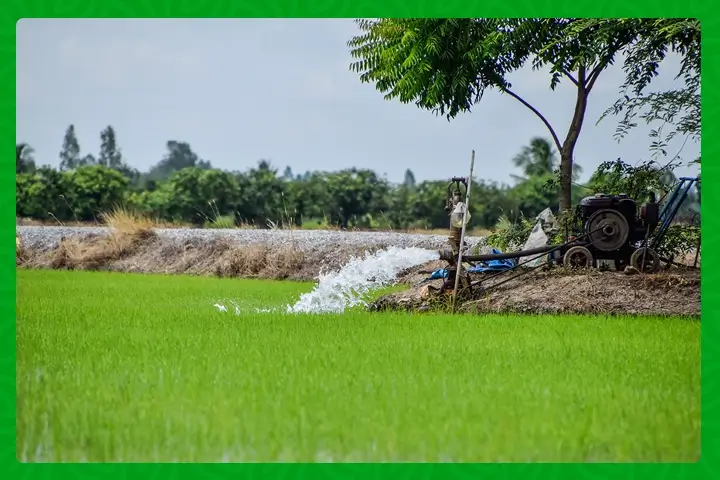
Where the essence of agriculture thrives, the convergence of farming and water sustainability becomes imperative. Water is essential for agricultural production and food security. According to the World Bank, irrigated agriculture represents 20 percent of the total cultivated land and contributes 40 percent of the total food produced worldwide. However, water resources are under increasing pressure from climate change, population growth, and pollution. Therefore, farmers need to adopt smart and sustainable methods for water management in agriculture. In this article, we try to delve into the critical interplay between farming and water sustainability, exploring how conscientious practices can pave the way for a sustainable future.
Understanding the Challenge:
Earth’s Agricultural tapestry is rich and diverse, but the looming challenges of water scarcity and climate change necessitate a paradigm shift in farming practices. Unpredictable rainfall patterns and depleting water resources demand a thoughtful and integrated approach to sustain agriculture for generations to come.
Precision Farming Techniques:
To address the water challenge, embracing precision farming techniques is paramount. Precision farming involves using technology and data-driven insights to optimize the use of water and other resources. Implementing drip irrigation, for example, not only conserves water but also enhances the efficiency of nutrient delivery to crops.

Rainwater Harvesting:
One of the time-tested methods to enhance water sustainability is rainwater harvesting. This involves collecting and storing rainwater during the monsoon season for later use in agriculture. Implementing rainwater harvesting systems on farms can significantly reduce dependence on external water sources.

Crop Diversification and Water Efficiency:
Diversifying crops is another strategy to enhance water efficiency. Certain crops have lower water requirements and are better suited to withstand periods of drought. By encouraging farmers to diversify their crops, we not only mitigate water usage but also promote resilience in the face of changing climatic conditions.
Community Involvement and Education:
A holistic approach to water sustainability in farming involves active community involvement and education. Workshops, training programs, and awareness campaigns can empower farmers with the knowledge and skills needed to implement water-efficient practices. Collaborative efforts within farming communities can amplify the impact of sustainable water management initiatives.
Policy Advocacy for Water Conservation:
As a consultant in Organic regulatory certification, I understand the pivotal role that government policies play in shaping agricultural practices. Advocating for policies that incentivize and support water conservation efforts is crucial. These policies can include financial incentives for adopting water-efficient technologies and practices, creating a regulatory framework for sustainable water use, and promoting research and development in water-saving agricultural methods.
In the verdant landscapes of mother nature, the intricate bonding aligning farming and water sustainability is not just a necessity but a responsibility. As we navigate the challenges posed by climate change, implementing water-efficient practices becomes a cornerstone of securing our agricultural legacy. Through precision farming, rainwater harvesting, crop diversification, community engagement, and policy advocacy, we can collectively pave the way for a sustainable and water-resilient agricultural future. This also involves using practices such as mulching, intercropping, and crop rotation to improve soil health and water retention.
Anil M V, Founder, Organil Services

Organil Services are Registered for Organic Regulatory Certification Consultancy and Accreditation Services in the Industry. WhatsApp for a Prepaid Consultancy +91 8606551335 or Email : orgnil40@gmail.com.


















